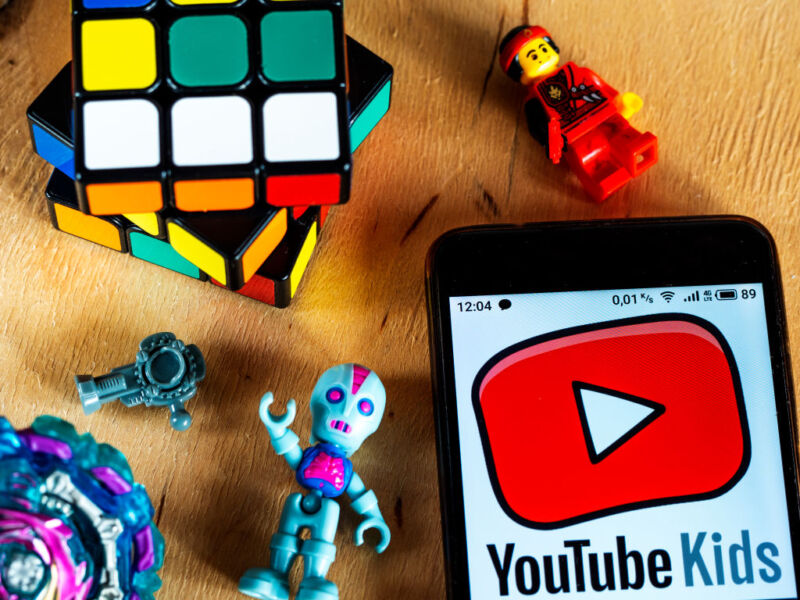Four nonprofit groups seeking to protect kids' privacy online asked the Federal Trade Commission (FTC) to investigate YouTube today, after back-to-back reports allegedly showed that YouTube is still targeting personalized ads on videos "made for kids."
Now it has become urgent that the FTC probe YouTube's data and advertising practices, the groups' letter said, and potentially intervene. Otherwise, it's possible that YouTube could continue to allegedly harvest data on millions of kids, seemingly in violation of the Children's Online Privacy Protection Act (COPPA) and the FTC Act.
The first report alleging YouTube's noncompliance with federal laws came last week from Adalytics and was quickly corroborated by research from Fairplay, one of the groups behind the FTC letter, The New York Times reported. Both groups ran ad campaigns to test if YouTube was really blocking all personalized ads from appearing in children's channels, as YouTube said it was. Both found that "Google and YouTube permit and report on behavioral ad targeting on 'made-for-kids' videos, even though neither should be possible under COPPA."
Google spokesperson Michael Aciman told The New York Times that these reports "point to a fundamental misunderstanding of how advertising works on made-for-kids content."
"We do not allow ads personalization on made-for-kids content, and we do not allow advertisers to target children with ads across any of our products,” Aciman told The Times.
But in their letter, child advocates told FTC Chair Lina Khan that they have "serious questions" about whether Google is being honest about ad targeting. After running targeted ad campaigns, Fairplay reported that YouTube placed its behavioral ads on children's channels 1,446 times. If YouTube was operating in compliance with COPPA as it claimed, Fairplay said that these campaigns would have resulted in zero ad placements.
These impressions gleaned from Fairplay's ads represent only a small sliver of what groups—including Fairplay, the Center for Digital Democracy, Common Sense Media, and the Electronic Privacy Information Center—told the FTC that they see as a huge child privacy problem on YouTube in need of "robust remedies."
Currently, YouTube is under an FTC consent decree requiring COPPA compliance after already being hit with a $170 million penalty in 2019 for violating the child privacy law. This penalty was "the largest amount the FTC has ever obtained in a COPPA case since Congress enacted the law in 1998," the FTC said in 2019. But child advocacy groups now suspect that a second FTC probe into YouTube could result in a fine that dwarfs that 2019 record penalty. Their letter suggested that if millions of COPPA violations are discovered through the FTC probe, "the Commission should seek civil penalties upwards of tens of billions of dollars."
"If Google and YouTube are violating COPPA and flouting their settlement agreement with the Commission, the FTC should seek the maximum fine for every single violation of COPPA and injunctive relief befitting a repeat offender," Josh Golin, Fairplay's executive director, told Forbes.
Golin told Ars that when Adalytics released its report last week, he was surprised to see YouTube seemingly willing to "get its hand caught in the COPPA cookie jar again."
Golin told Ars that heftier fines may be needed to motivate YouTube to take more steps to protect kids on its platform. He recommended that instead of trusting YouTube to limit data collection, YouTube should be required to secure parental consent for all youth data collection—or cease monetizing youth data entirely.
Google did not immediately respond to Ars' request to comment.



3175x175(CURRENT).thumb.jpg.b05acc060982b36f5891ba728e6d953c.jpg)
Recommended Comments
There are no comments to display.
Join the conversation
You can post now and register later. If you have an account, sign in now to post with your account.
Note: Your post will require moderator approval before it will be visible.